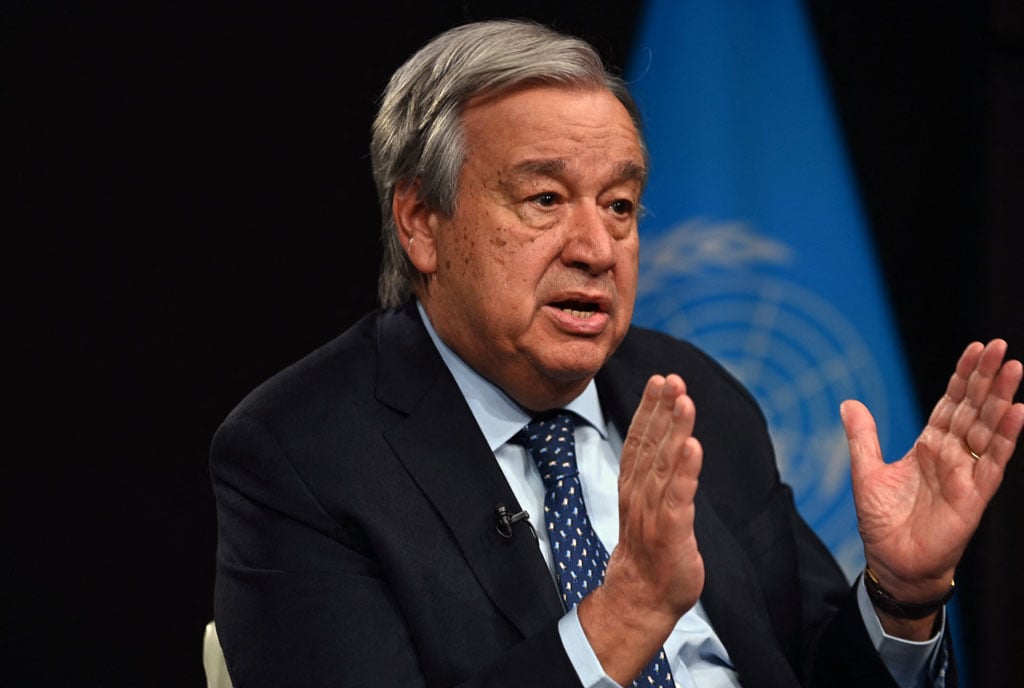Prime
COP28 should focus on health action to save generations

Author, Tonny Musani. PHOTO/FILE/COURTESY
What you need to know:
- ...heat-related deaths among those aged over 65 years have risen by 70 percent worldwide in two decades...
The impact of climate change on health is an imperative discussion that should take centre stage in the climate negotiations in Dubai, United Arab Emirates, as the 2023 UN Climate Change Conference (COP28) kicks off.
The World Health Organisation (WHO) has already indicated that it is imperative to broaden the focus on human health in the discussions and to compel negotiators to recognise that they bear the responsibility for the well-being of the world population.
“As the world unites at COP28, we urge negotiators to recognise that climate action is health action, and failure to address this reality will have profound consequences for the well-being of current and future generations,” WHO Director-General Dr Tedros Adhanom Ghebreyesus said this week. Delegates must, therefore, provide strong health outcomes that are people-centred.
Globally, the extreme weather events around the world in recent months offer a terrifying glimpse of what lies ahead in the heating world.
Heat-related deaths among those aged over 65 years have risen by 70 percent worldwide in two decades, according to WHO’s figures. Only a dramatic and dedicated effort to limit warming to 1.5 degrees Celsius will prevent a future much worse than what we see now.
Data from Copernicus Climate Change Service, the European Union’s Earth Observation Programme that provides authoritative information about the past, present, and future climate in the World, shows that the world is breaching the 1.5 degrees Celsius key warming threshold, yet the target is crucial in mitigating the disastrous impacts of climate change. Uganda has experienced a turbulent year of drought, floods, and too much heat, which has strained healthcare infrastructure and livelihood.
This year, two consecutive dry seasons have left farmers struggling to fend for their families. In September, for example, the dry spell withered several crops in Kasese District and different parts of the country making farmers count losses and causing a hike in food prices.
Forecasts by the World Bank indicate that without bold and immediate action, climate change could displace some 216 million people by 2050.
As the climate crisis jeopardises lives and livelihoods, global food systems will struggle to sustain a growing population, and compromised water sources will compound the challenges. Climate change will also catalyse a surge in infectious diseases such as dengue and cholera, endangering millions.
“Now is the time for decisive and collaborative action to mitigate the health impacts of the climate crisis and build a sustainable future for all,” Dr Tedros Ghebreyesus says.
Climate change will continue to pose unprecedented challenges to health systems and it’s mandatory for governments to strengthen health systems to be resilient, low-carbon, and sustainable.
Climate change is no longer a distant threat, it is a “present danger affecting our health on multiple fronts’’.
The rising temperatures killed 5,000 people last year, according to the State of the Climate in Africa 2022 report. Findings reveal that the rate of temperature increase in Africa has accelerated in recent decades, with weather and climate-related hazards becoming more severe.
In 2022 alone, more than 110 million people in Africa were directly affected by weather, climate, and water-related hazards, causing more than $ 8.5b in economic damages, according to the report.
As the globe gathers, it’s now a catch-24 moment for deeper conversations and to demonstrate the massive benefits of bolder climate action on our health and well-being. Prioritising health is no longer a choice, but the foundation of resilient societies.
The writer, Tonny Musani, is an environmental journalist




